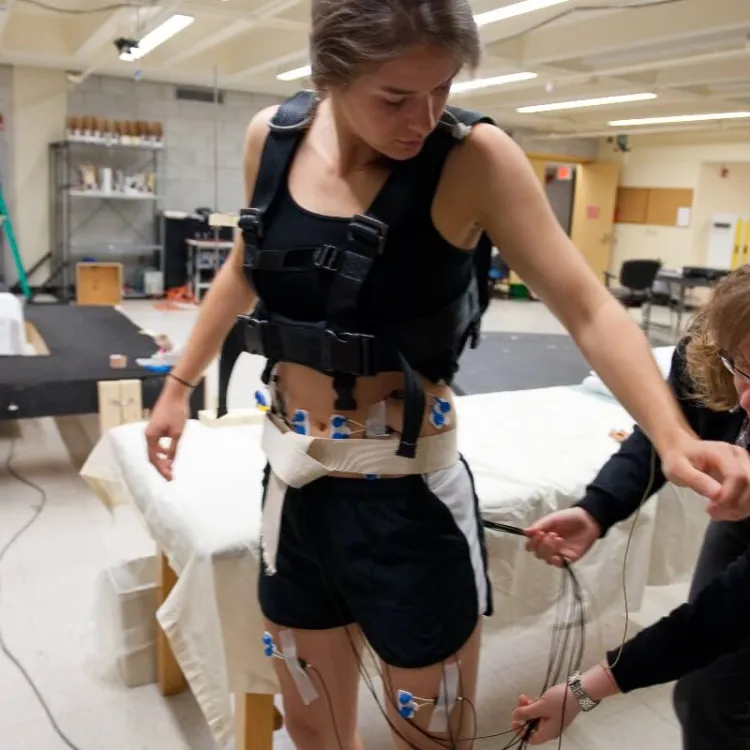Program Overview
Gain the practical skills and real-world experience needed to excel in the field of exercise science, preparing you for a successful career helping individuals of all ages and abilities improve their health, fitness, and overall well-being. As a graduate of UVM’s Exercise Science program, you will be prepared for careers in sport and fitness centers, employee wellness programs, community rehabilitation clinics, and other health settings.
- Lab-based coursework: Experience innovative body composition technology, metabolic cart and fitness testing, and cardiorespiratory outcomes assessment tools in our state-of-the-art facilities.
- Hands-on practice: Gain experience and practical knowledge that will prepare you for a successful career in the field of human performance and adapted physical activity.
- Professional experience: Develop your clinical skills under the guidance of experienced faculty in our senior capstone program. Choose from a variety of internship opportunities, including clinical, research, or community-based experiences. UVM’s affiliations with UVM Medical Center, Burlington YMCA, VASTA Physical Therapy and Performance, Special Olympics and other community settings provide opportunities for observation, knowledge application, and important professional skill practice. The Exercise Science Club provides additional experience, valuable networking opportunities with industry professionals, and access to conferences.
- Foundation for graduate study: Many students pursue advanced study options in health professions such as physical therapy, occupational therapy, chiropractic, public health, and clinical exercise physiology after completing the undergraduate program.
The Exercise Science program is proud to be a member of the American Kinesiology Association.

Accreditation
The University of Vermont’s Exercise Science program is accredited by the Commission on Accreditation of Allied Health Education Programs (CAAHEP) and the Committee on Accreditation for the Exercise Sciences (CoAES). The American College of Sports Medicine (ACSM) is a sponsoring organization of the CoAES. The American College of Sports Medicine is considered the most prestigious and influential governing body in the field of Exercise Science. Starting in 2027, students will be required to graduate from a CAAHEP Accredited Exercise Science program to be eligible for advanced ACSM national certifications in Exercise Science.